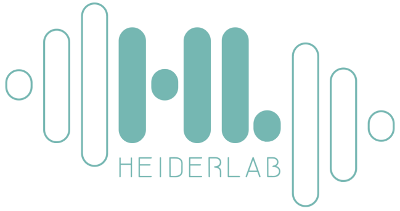CORona Drug InTEractions database
Activity profiling of SARS-CoV-2-PLpro protease provides structural framework for anti-COVID-19 drug design
Wioletta Rut, Mikolaj Zmudzinski, Zongyang Lyu, Digant Nayak, Scott J. Snipas, Miklos Bekes, Tony T. Huang, Shaun K. Olsen, Marcin Drag
Abstract
In December 2019, the first cases of a novel coronavirus infection causing COVID-19 were diagnosed in Wuhan, China. Viral Papain-Like cysteine protease (PLpro, NSP3) is essential for SARS-CoV-2 replication and represents a promising target for the development of antiviral drugs which would be facilitated by an understanding of its substrate specificity. Here, we used a combinatorial substrate library containing natural and a wide variety of nonproteinogenic amino acids and performed comprehensive activity profiling of SARS-CoV-2-PLpro. We found that the P2 site of SARS-CoV-2-PLpro is highly specific for Gly, the P3 site exhibits a high degree of promiscuity, and the P4 site exhibits a preference for amino acids with hydrophobic side chains. We also demonstrate that SARS-CoV-2-PLpro harbors deubiquitinating activity. Both the substrate binding profile and deubiquitinating activity are shared with the highly related SARS-CoV-PLpro which harbors near identical S4-S2 binding pockets. On the scaffold of best hits from positional scanning we have designed optimal fluorogenic substrates and irreversible inhibitors with a high degree of selectivity for SARS PLpro variants versus other proteases. Altogether this work has revealed the molecular rules governing PLpro substrate specificity and provides a framework for development of inhibitors with potential therapeutic value or drug repositioning.
Source: BioRxiv
Related molecules
| Name | Synonyms | Genes |
|---|---|---|
| Papain-like proteinases 1/2 | Non-structural protein 3, papain like viral protease, nsp3, PL1-PRO/PL2-PRO, PLP1/PLP2, p195, Plpro | rep, ORF1a-1b |
| Target | Target affiliation | Drug | Type | Result |
|---|---|---|---|---|
| Target | Target affiliation | Drug | Type | Result |
| Name | Synonyms | Genes | Origin |
|---|---|---|---|
| Name | Synonyms | Genes | Origin |
| Name | Synonyms | PubChem | DrugBank | RCSB PDB | ATC |
|---|---|---|---|---|---|
| Name | Synonyms | PubChem | DrugBank | RCSB PDB | ATC |
| Title | Authors | DOI | Source | Article type | Date |
|---|---|---|---|---|---|
| Title | Authors | DOI | Source | Article type | Date |
| Title | Status | Phases | Start Date | Prim. Comp. Date | Comp. Date | First Post. Date |
|---|---|---|---|---|---|---|
| Title | Status | Phases | Start Date | Prim. Comp. Date | Comp. Date | First Post. Date |
CORDITE (CORona Drug InTEractions database) collects and aggregates data from PubMed, MedRxiv, BioRxiv, ChemRxiv and PMC for SARS-CoV-2. Its main focus is set on drug interactions either addressing viral proteins or human proteins that could be used to treat COVID. It collects and provides up-to-date information on computational predictions, in vitro, as well as in vivo study data.
The information provided is for research only and we cannot guarantee the correctness of the data.
Please contact dominik.heider@uni-muenster.de for further information.
Programmable access
There is an open API for access programmatically to the database. The API will print a JSON output:
- Interactions
https://cordite-api.uni-muenster.de/api.php?action=list&table=interaction
- Targets
https://cordite-api.uni-muenster.de/api.php?action=list&table=target
- Drugs
https://cordite-api.uni-muenster.de/api.php?action=list&table=drug
- Publications
https://cordite-api.uni-muenster.de/api.php?action=list&table=publication
- Clinical trials
https://cordite-api.uni-muenster.de/api.php?action=list&table=clinical_trial

